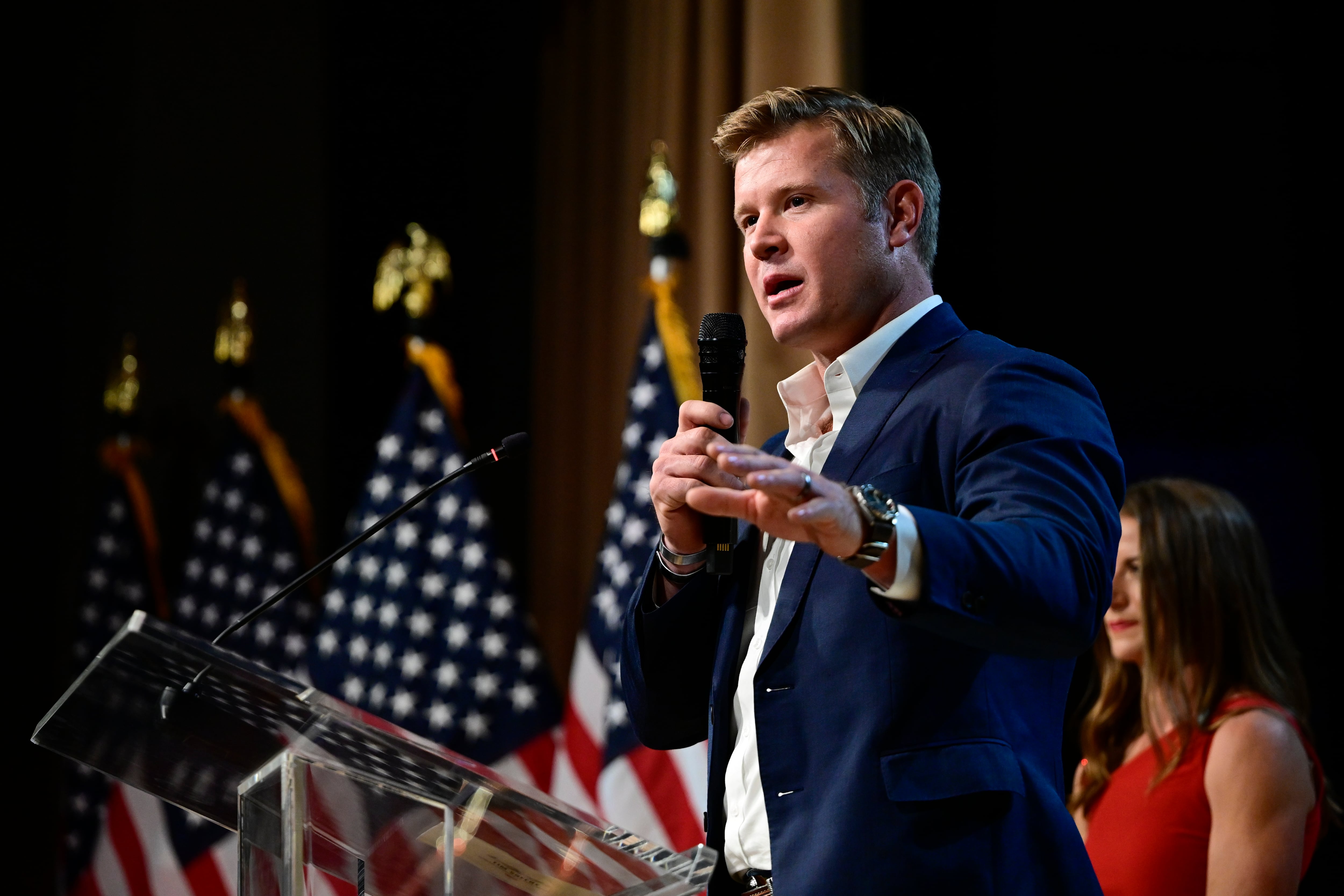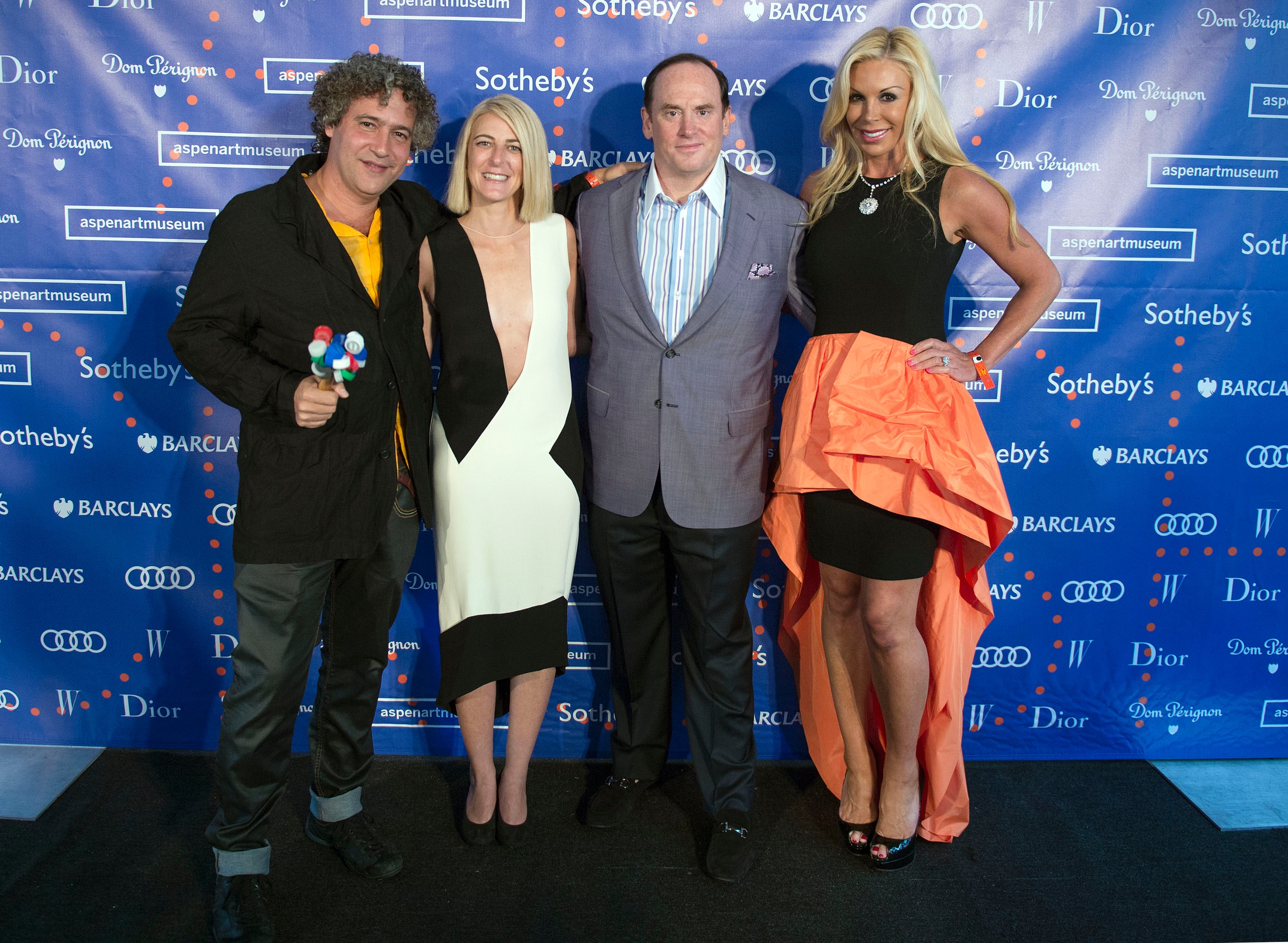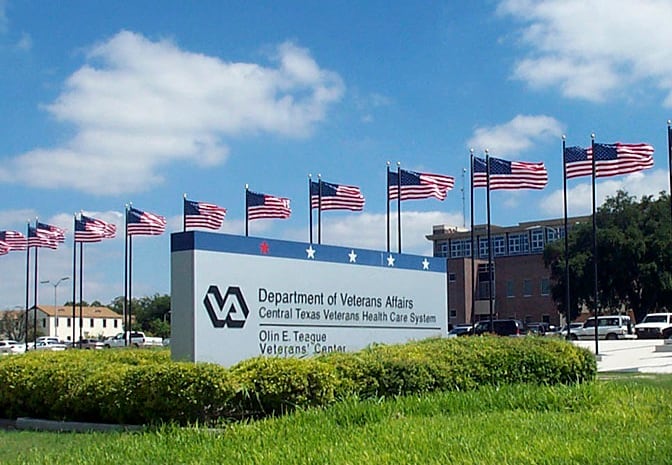source GAIA package: Sx_MilitaryTimes_M6201310302110328_5675.zip Origin key: Sx_MilitaryTimes_M6201310302110328 imported at Fri Jan 8 18:18:08 2016
MARINE CORPS RECRUIT DEPOT PARRIS ISLAND, S.C. — Lance Cpl. Daniel Chaires bled to death six years ago in Iraq, the victim of a well-placed enemy round that struck his abdomen just below his body armor during a sophisticated ambush in Haditha. At least three other members of Echo Company, 2nd Battalion, 3rd Marines, were wounded in the battle. Dozens more were hurt or killed throughout the deployment.
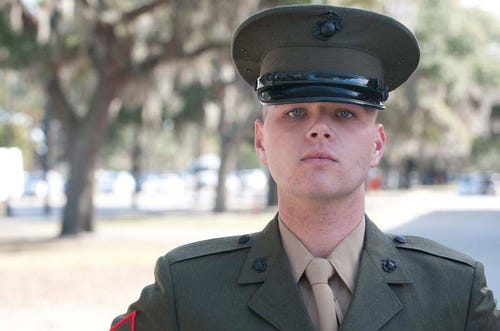 Sgt. Nicholas Lanier, who today is finishing his tour as a drill instructor here at Parris Island, was Chaires' good buddy and former roommate. He was with the quick-reaction force called in to extract the ambushed squad that afternoon, Oct. 25, 2006, arriving just as his friend, pale but still conscious, was loaded into a vehicle bound for the nearest field hospital.
Sgt. Nicholas Lanier, who today is finishing his tour as a drill instructor here at Parris Island, was Chaires' good buddy and former roommate. He was with the quick-reaction force called in to extract the ambushed squad that afternoon, Oct. 25, 2006, arriving just as his friend, pale but still conscious, was loaded into a vehicle bound for the nearest field hospital.
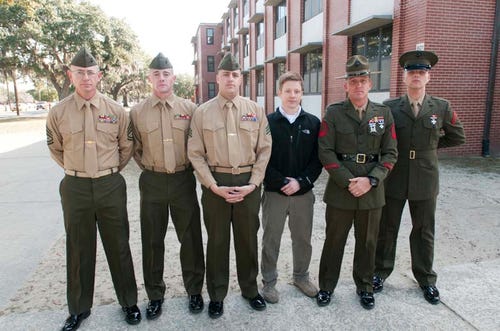 Seated in a squad bay, Marine recruit Anthony Cuchens Jr. listened intently as his senior drill instructor detailed Echo Company's experience in Haditha. He felt chills. Lanier's story sounded familiar. Painfully so.
Seated in a squad bay, Marine recruit Anthony Cuchens Jr. listened intently as his senior drill instructor detailed Echo Company's experience in Haditha. He felt chills. Lanier's story sounded familiar. Painfully so.
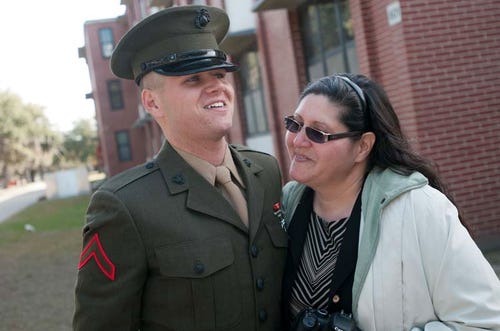 This was the first phase of boot camp. Cuchens knew full well that new recruits like him don't speak unless they're spoken to. But as Lanier revealed more details about the attack, Cuchens stood and felt compelled to speak.
This was the first phase of boot camp. Cuchens knew full well that new recruits like him don't speak unless they're spoken to. But as Lanier revealed more details about the attack, Cuchens stood and felt compelled to speak.
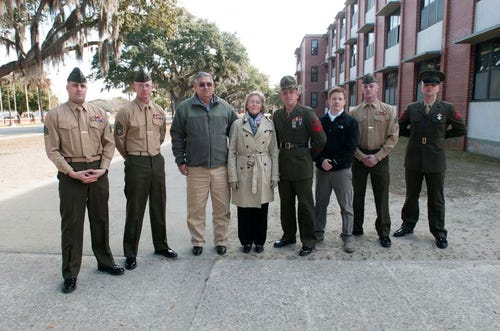 "Sir," he asked Lanier. "Does the name Lance Cpl. Daniel Chaires mean anything to you?"
"Sir," he asked Lanier. "Does the name Lance Cpl. Daniel Chaires mean anything to you?"
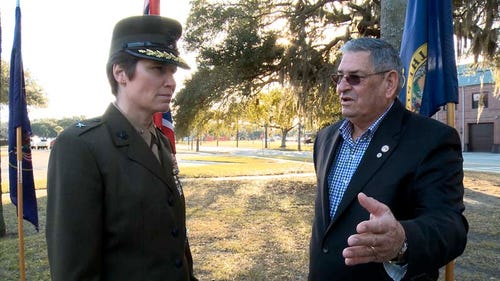 Lanier glared back at Cuchens and told him to shut his mouth. "How do you know that name?" the DI asked.
Lanier glared back at Cuchens and told him to shut his mouth. "How do you know that name?" the DI asked.
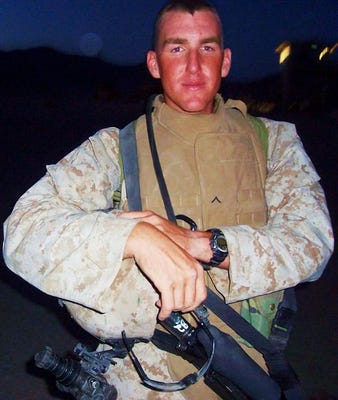 "He's my cousin, sir," Cuchens answered.
"He's my cousin, sir," Cuchens answered.
Their conversation ended there. Some time later other drill instructors took Cuchens and the recruits to chow. When the room was clear, Lanier exhaled. "Then," he said, "I just stood in the squad bay and pretty much bawled my eyes out."
This chance meeting stands as an example not only of sublime coincidence but what Brig. Gen. Lori Reynolds, Parris Island's commanding general, called the Corps' true brotherhood. For this story doesn't involve only this recruit and this DI. On Feb. 1, the day Pfc. Cuchens graduated from boot camp, Marines came from across the country to welcome him to the fold. This is Lance Cpl. Chaires' legacy.
Echo 2/3
Echo Company left Marine Corps Base Hawaii for Iraq's Anbar province in September 2006. Haditha, where Marines saw intense violence throughout much of the war, was kinetic from the start, said Maj. Matthew Tracy, Echo Company's commander when Chaires was killed.
"We handed out 70 Purple Hearts in the first 70 days of work there," he said.
On Oct. 25, Chaires' squad set out on patrol. Another of his buddies, Sgt. Jeffrey Carlson, recalls stopping a suspicious vehicle carrying several men. When they searched it, the Marines found thousands of American dollars and Iraqi dinars inside, he said. They moved to detain the men, and a firefight broke out. It was a setup, Carlson said, and a well-orchestrated one.
"We started taking very heavy enemy fire from a building and the palm groves to our east, near the Euphrates River," said Carlson, now with 3rd Battalion, 1st Marines, at Camp Pendleton, Calif. "This was a well set-up ambush by the enemy. They had multiple machine guns in several fighting positions and small arms firing on us."
Pinned down and seemingly outnumbered, the Marines watched as enemy fighters moved from position to position in the palm groves. Not long into the fight, Chaires was shot in the stomach, Carlson said.
"Our corpsman rushed over and began first aid," he said. "Chaires was able to help provide security and return a few rounds."
Sgt. Joseph Carter, an infantry rifleman who now serves as a pistol instructor at Officer Candidates School in Quantico, Va., was conducting house raids farther north when he picked up radio chatter indicating his good friend was hit. At the time, it didn't sound dire. He recalls hearing that Chaires was stable — that he was going to be OK, Carter said.
But the fighting intensified, and insurgents began firing rocket-propelled grenades, Carlson said. Some were close enough to throw hand grenades. Amid the chaos, two more Marines were shot. Sgt. John Hunsberger, a machine gunner, was hit in the leg. And when a second machine gunner, Cpl. Jacob Kareus, ran over to help him, he too was shot in the leg.
"It was very hectic, and we were all returning fire when a grenade rolled up near myself and [then] Lance Corporal Travis Zabroski," Carlson said. "Luckily we did not get injured from the grenade — not sure how because we watched it bounce right next to us."
Zabroski was also shot in the leg, but he still ran from position to position, calling out targets and protecting Marines from enemy fire, Carlson said. By this time, the squad radioed Echo Company's main headquarters and called a fumble, Carlson said. That meant mass casualties and the need for immediate support.
Just north of Haditha, former Cpl. Thurman Jones heard about the ambush over the radio. He was part of the quick reaction force tapped to respond. But they encountered their own catastrophe while en route, one that would prevent them from reaching the others.
"We were just trying to get down there as quick as we could," Jones said. "And on our way our patrol hit an IED."
That attack killed Lance Cpl. Donald Brown, 19, and Navy Construction Electrician 2nd Class Charles Komppa, 35. Their corpsman was severely wounded. Brown, a private first class at the time, was posthumously promoted.
"We hit the IED and came under an ambush, and so we were tied down and there was nothing we could do to get there," Jones said. "It was pretty much two simultaneous attacks going on, just about two or three clicks away from each other."
As they awaited a second QRF, Zabroski, now a sergeant, asked Carlson how many grenades he had left. They thought about clearing a house across the street so they could move the casualties inside. Zabroski was meritoriously promoted to corporal and awarded a Bronze Star with combat V for his actions that day.
They kept fighting until the second QRF was able to extract them about 20 minutes later, Carlson said. Lanier was with that group. By the time Chaires was loaded into the vehicle, Carlson said, he was very pale. "Zabroski kissed him on the forehead and told him he would be all right, and we would see him soon," he said.
That was the last time they saw him alive.
Pfc. Cuchens
Cuchens is from Freeport, Fla. He's the son of an Army chaplain. The 20-year-old was scheduled to ship off to Parris Island in March, but when his recruiter mentioned he could leave earlier, Cuchens thought the boot camp experience might be more bearable in the winter.
At this graduation ceremony, Cuchens told Marine Corps Times that he was inspired to join the Corps after seeing the transformation his cousin made upon becoming a Marine. That squared-away look and attitude made him want to follow his cousin's lead and stand on the yellow footprints.
"Daniel really had everything to do with my decision to join the Marine Corps," Cuchens said. "The way he carried himself, the way he acted, I was completely in awe of what the Marine Corps did to him. I could see that he was the kind of man I wanted to be when I was older."
When Cuchens changed his ship date, he had to sign a new contract. That meant he had to retake the Oath of Enlistment, which he did Oct. 25, 2012 — six years to the day after his cousin died in Iraq. That was the first of many coincidences that would connect the start of his Marine Corps career with Lanier and the Marines who traveled to Parris Island to welcome him.
Cuchens' platoon is the last one Lanier led. He's now done with his three-year DI tour and awaiting the start of his next assignment. He'll join Carlson in 3/1 at Camp Pendleton. Had Cuchens gone to boot camp in March as planned, he and Lanier would not have crossed paths. None of that is an accident, Cuchens said.
"Daniel was upstairs orchestrating something through all of this," he said. "It couldn't have just happened by itself."
Once Lanier alerted some of the Echo Company Marines that Chaires' cousin was in his platoon, they mobilized immediately. Since Chaires couldn't be there to welcome his cousin into the Marine Corps, they would be. Carlson, Jones and Carter, along with Gunnery Sgt. Clinton Ticer, an infantry unit leader, now with 1st Battalion, 9th Marines, at Camp Lejeune, N.C., made the trek to Parris Island to reunite with the fallen Marine's family. The trip, Ticer said, was a great opportunity to show the Chaires family that the Corps is still there for them.
"This isn't something that just happened a few years ago, but something that still is," the gunny said.
Reynolds, Parris Island's CG, described the gesture as a fine example of Marines' fraternal nature. When the worst happens, she said, she prays the families are taken care of. It was inspiring to see the Marines doing just that, she said.
"These are not coincidences, it's just the way things happen in the Corps," Reynolds said. "It's why folks like us stay in — because it's humbling to lead people like this."
Tracy, Echo Company commander, was similarly moved to hear his Marines came together for Cuchens' graduation. It shows that esprit de corps is not a cliché, he said. Tracy was awarded the Leftwich Trophy for Outstanding Leadership following the deployment with 2/3 to Haditha.
The fight that took Chaires' life was important, Tracy said, because it highlighted the area as a nucleus of enemy activity, a place of comfort and strength for the insurgency. Now with the future operations section of Marine Forces Pacific, Tracy said Echo 2/3 left Haditha knowing Chaires' sacrifice there was worth it. After a few months, they didn't face another shot fired, he said. Nor did the unit that replaced them.
"You have to be able to look in the mirror and say, 'This is worth it. This is worth getting hurt over or worth not coming home over,'" Tracy said.
Chaires' father, Harry, a former corporal and retired captain with the Leon County Sheriff's Office outside Tallahassee, Fla., said knowing what the Marines accomplished during that deployment provides his family with a sense of comfort. They cleaned out a "nest of insurgents," he said. And although it came at great expense, "it was all worthwhile."
"Therefore," Harry Chaires said, "we do not feel that we lost Daniel in vain."
For Cuchens, knowing he attended the same recruit training as his cousin did, overcame the same obstacles during the Crucible and received the same eagle, globe and anchor, has been a source of motivation. The feeling crystallized for him when his platoon conducted a mock helicopter evacuation.
"We were running down the trail and we had to sprint as fast and as hard as we could," he said. "All I could think about was Daniel — a Marine who gave his life in combat. I knew if I was in that situation in real life, I would have to run as hard as I could to get to the casualty."
Unlike his grunt cousin, Cuchens will become an automotive maintenance technician. But as he leaves boot camp, he said he'll keep with him all that he learned there: to be noticeable in a crowd, stand tall and always carry himself like a Marine. Just like his cousin.
"I hope that I can be all that and a little bit more for Daniel's sake," he said. "I hope I can carry on his legacy, and that I imitate the great Marine he was through my career."

